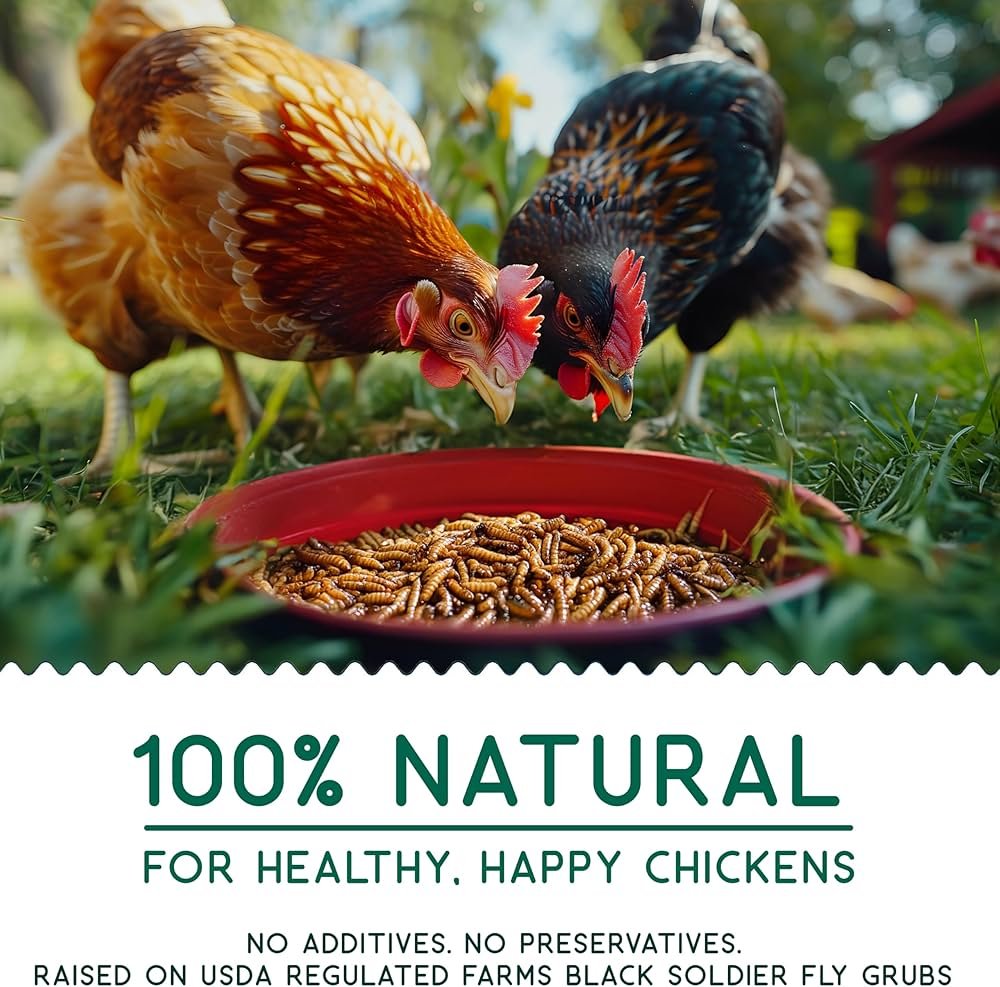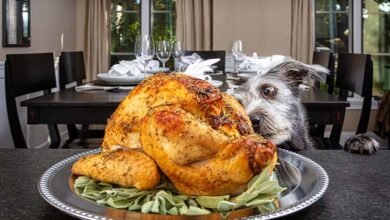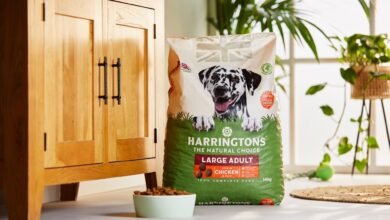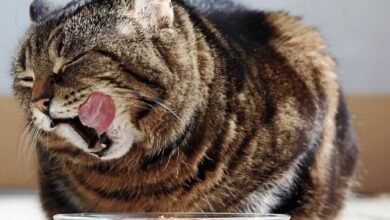
Bird food is essential for providing the necessary nutrition to birds.
Why Proper Nutrition Is Important For Birds
Proper nutrition plays a crucial role in maintaining the health and well-being of our avian friends. Birds, like any other living creatures, require a balanced diet to thrive. Providing them with the right nutrients not only ensures their physical well-being but also has a significant impact on their behavior, reproduction, and immune system function. In this blog post, we will explore the importance of proper nutrition for birds and delve into the fascinating relationship between nutrition and avian health.
Birds Require A Balanced Diet For Optimal Health
Birds need a diverse range of nutrients to meet their nutritional requirements. Just like us, they require a balance of proteins, carbohydrates, fats, vitamins, minerals, and water to stay healthy. Each nutrient serves a specific purpose in their bodies, contributing to overall health and vitality. For instance, proteins are essential for muscle development and repair, while carbohydrates provide the necessary energy for daily activities.
By offering a varied diet that includes a mix of seeds, nuts, fruits, vegetables, and even insects, you can help ensure that your feathered companions receive all the essential nutrients they need. Providing this variety not only keeps them physically fit but also prevents nutritional deficiencies that can lead to various health problems.
The Impact Of Nutrition On Bird Behavior And Reproduction
The influence of nutrition on bird behavior and reproduction should not be underestimated. A nutritious diet is directly linked to a bird’s ability to exhibit natural behaviors, such as flying, singing, and foraging. Nutrient-rich foods provide them with the energy they need to engage in these activities, allowing them to express their innate instincts.
Furthermore, proper nutrition plays a vital role in avian reproductive processes. Birds that receive inadequate nutrition may experience difficulties in breeding, lower egg production, and decreased fertility. In contrast, a well-balanced diet enhances reproductive success, enabling the birds to hatch healthy offspring and continue their species’ survival.
Link Between Nutrition And Immune System Function In Birds
The immune system is responsible for defending the body against infections and diseases. In birds, proper nutrition is closely tied to immune system function. When birds consume a nutrient-rich diet, their immune system is better equipped to fight off pathogens, viruses, and other harmful substances that can compromise their health.
A diet lacking essential nutrients weakens the immune system, making birds more susceptible to infections and diseases. Vitamin deficiencies, for example, can impair the production and function of immune cells, leaving the birds defenseless against common infections.
By providing birds with a nutritionally balanced diet, you are effectively supporting their immune system and promoting their overall health and well-being.
:max_bytes(150000):strip_icc()/top-bird-feeding-mistakes-386614-hero-48dd1b9c3cf34d60b517e6155b3fc818.jpg)
Credit: www.thespruce.com
Essential Nutrients For Birds
For birds to thrive and maintain optimal health, it is crucial to provide them with a well-balanced diet that includes essential nutrients. Just like humans, birds require a variety of nutrients to support their bodily functions and overall well-being.
Carbohydrates: Providing Energy For Birds
Carbohydrates serve as the primary source of energy for birds. These macronutrients are broken down into glucose, which is then used by the body to perform various activities such as flying, foraging, and even singing.
Some common sources of carbohydrates for birds include grains, seeds, fruits, and nectar. These food items are packed with complex carbohydrates that provide sustained energy throughout the day.
Proteins: Building Blocks For Growth And Repair
Proteins are the building blocks of life, responsible for the growth and repair of tissues in birds. They play a vital role in the development and maintenance of feathers, muscles, and organs.
Birds require high-quality proteins in their diet to meet their specific needs. Insect larvae, grubs, and mealworms are excellent sources of protein for birds, offering essential amino acids necessary for their growth and vitality.
Fats: A Source Of Concentrated Energy
Fats are dense in energy and provide birds with a concentrated source of fuel. They serve as reserves, especially during long migratory journeys or harsh weather conditions when food availability may be limited.
Seeds, nuts, and suet are rich in healthy fats and are highly sought-after by birds. Fats not only provide energy but also aid in insulation and help maintain healthy skin and feathers.
Vitamins: Essential For Various Bodily Functions
Vitamins are essential for birds to perform various bodily functions, including metabolism, digestion, and immune system support. They act as co-factors in enzymatic reactions and play a crucial role in maintaining overall health.
Different vitamins have distinct functions. For example, vitamin A is vital for maintaining healthy eyesight, while vitamin D helps with calcium absorption and bone strength. Fruits, vegetables, and insects are excellent sources of vitamins for birds.
Minerals: Regulating And Supporting Bird Health
Minerals are essential for regulating bodily functions and supporting bird health. They play a crucial role in bone development, muscle contraction, and even maintaining proper heart function.
Birds require a variety of minerals, including calcium, phosphorus, iron, and magnesium, among others. These minerals can be obtained through a balanced diet that includes seeds, greens, and even grit or gravel for improved digestion.
Best Foods To Include In A Bird’s Diet
Birds, just like humans, require a well-balanced and nutritious diet to thrive. While they do have their own unique dietary needs, incorporating a variety of foods into their diet ensures that they receive all the essential nutrients they need. Here are some of the best foods to include in a bird’s diet:
Seeds: Nutrient-rich And Commonly Enjoyed By Birds
Seeds are a staple in many bird’s diets due to their high nutrient content and widespread availability. They provide a rich source of essential vitamins, minerals, and healthy fats that are crucial for the health and well-being of our feathered friends. Different varieties of seeds, such as sunflower seeds, millet, and safflower seeds, can attract a wide range of bird species to your backyard.
Fruits And Vegetables: Adding Variety And Essential Vitamins
Adding a variety of fruits and vegetables to a bird’s diet is a great way to introduce essential vitamins, minerals, and antioxidants. Fruits like apples, berries, and grapes provide a sweet treat while also offering important nutrients. Vegetables such as spinach, carrots, and broccoli are packed with vitamins and fiber, which contribute to a bird’s overall health and vitality. Including a mix of fresh, frozen, or dried fruits and vegetables ensures a well-rounded diet for your feathered companion.
Insects And Worms: A Natural Source Of Protein For Many Bird Species
For insect-eating bird species like robins or bluebirds, insects and worms are an essential part of their diet. They provide a natural source of protein, which is crucial for muscle development and overall growth. Including live or dried mealworms, crickets, or ants in a bird feeder or scattering them around your yard can attract insect-loving birds and provide them with a nutritious feast.
Nectar: Attracting Hummingbirds And Providing Necessary Sugars
Nectar is a vital source of energy for hummingbirds and certain other bird species. By offering a sugar-water solution in a hummingbird feeder, you can attract these fascinating creatures to your garden and help them sustain their high metabolism. Ensure the feeder is clean and the nectar solution is fresh and free from additives or artificial sweeteners to maintain the health of the birds.
Pellet And Pellet Alternatives: Convenient And Balanced Options For Bird Owners
Pellets and pellet alternatives are formulated to provide a convenient and balanced diet for pet birds. They contain a mix of essential nutrients, vitamins, and minerals, making them a reliable option for bird owners. Pellets come in various sizes and flavors to accommodate different bird species and their dietary requirements. However, it’s important to supplement pellet-based diets with fresh fruits, vegetables, and occasional treats to ensure a diverse and enjoyable eating experience for your feathered companion.
Considerations For Feeding Birds
When it comes to feeding our feathered friends, there are several important considerations to keep in mind. By understanding the seasonal variations and dietary adaptations of birds, the importance of providing hydration, avoiding harmful foods and toxins, and the different feeding methods and bird feeder options available, we can create a safe and inviting environment for a diverse range of bird species.
Seasonal Variations And Dietary Adaptations
Birds have unique nutritional needs that change throughout the year based on seasonal variations and dietary adaptations. For example, during the breeding season, many bird species require high-protein foods to support nest building, egg-laying, and feeding their young. In colder months, birds need more energy-rich foods to stay warm.
Hydration: The Importance Of Providing Water For Birds
Water is a critical component of a bird’s diet. It is essential for digestion, maintaining body temperature, and bathing. Providing a fresh source of water in your yard through a bird bath or shallow dish is crucial, especially during dry and hot periods. Remember to clean and refill the water regularly to prevent the spread of diseases.
Avoiding Harmful Foods And Toxins
While it’s tempting to share our human food with birds, it’s important to avoid feeding them foods that are harmful or toxic. For instance, bread, crackers, and other processed foods lack necessary nutrients and can lead to nutrient deficiencies in birds. Additionally, avoid offering foods that are high in salt, caffeine, or alcohol, as these can be toxic to birds.
Feeding Methods And Bird Feeder Options
There are various feeding methods and bird feeder options available to cater to different bird species and environments. Ground feeders or platform feeders are ideal for birds that prefer to feed on the ground, while tube feeders with small ports are suitable for attracting finches and smaller birds. Suet feeders are ideal for providing high-energy food to woodpeckers and other insect-eating birds.
The Role Of Bird Feeders In Attracting A Diverse Range Of Bird Species
Bird feeders play a crucial role in attracting a diverse range of bird species to your yard. Different types of feeders and foods can attract specific birds, allowing for observation and enjoyment of a wide variety of species. By offering a variety of foods and maintaining clean feeders, you can create an inviting habitat for different birds, enhancing biodiversity in your yard.
The Impact Of Bird Food On Conservation Efforts
Providing supplementary food to support wild bird populations
One impactful way to contribute to bird conservation efforts is by providing supplementary food for wild bird populations. By offering a reliable source of nutrition, we can help sustain their populations, especially during challenging seasons when natural food sources may be scarce. When we ensure birds have access to a steady supply of bird food, we not only assist them in maintaining their energy levels but also reduce their dependency on human-altered environments. This, in turn, can promote healthier ecosystems by preserving natural habitats.
Did you know that the food we choose to offer can have a significant impact on attracting and supporting endangered bird species? These birds often have specific dietary requirements that are crucial for their survival. By understanding and catering to their unique food preferences, we can create environments that are more conducive to their presence. For example, some endangered bird species, such as the California Condor, may be attracted to carcasses of large-sized game animals. By providing suitable food options, we actively participate in preserving and enhancing the chance of survival for these threatened birds. This practical step plays a vital role in our ongoing conservation efforts.
In addition to nourishing bird populations, bird feeding plays an important role in citizen science and avian research. When we observe and document the types of birds that visit our feeders, we contribute valuable data to scientific studies. This information helps researchers gain insights into the behavior, migration patterns, and population dynamics of different bird species. By becoming citizen scientists, we actively contribute to the understanding and conservation of our avian friends. Bird feeding, therefore, becomes an avenue for collaboration between the general public and researchers, strengthening our collective efforts to protect and preserve these beautiful creatures.
Frequently Asked Questions On Bird Food
What Is The Best Bird Food For Attracting Colorful Birds?
The best bird food for attracting colorful birds is typically a mix that includes sunflower seeds, nyjer seeds, and dried fruit. These foods are high in nutrients and appeal to a wide variety of bird species, including those with vibrant plumage.
How Often Should I Refill My Bird Feeders?
Ideally, you should refill your bird feeders every two to three days. This ensures that the food remains fresh and prevents it from becoming moldy or spoiled. Regular refilling also encourages birds to visit your feeder regularly.
Can I Feed Bread To Birds?
While it may be tempting, it is best to avoid feeding bread to birds. Bread offers little nutritional value and can be harmful to their health. Instead, offer bird-specific food such as seeds, suet, or fruit to provide them with the nutrients they need.
How Can I Prevent Squirrels From Accessing My Bird Feeders?
To prevent squirrels from accessing your bird feeders, consider using squirrel-proof feeders that are designed with mechanisms to deter them. You can also place your feeders away from trees and use baffles or greased poles to make it difficult for squirrels to reach the feeders.
Conclusion
Providing the right bird food is essential for the health and well-being of our winged friends. By understanding their dietary needs and offering a diverse range of nutritious options, we can attract a variety of bird species to our gardens and help support their survival.
Remember to choose high-quality bird food, avoid artificial additives, and keep feeders clean to create a safe and inviting environment for our feathered friends. Happy bird watching!



